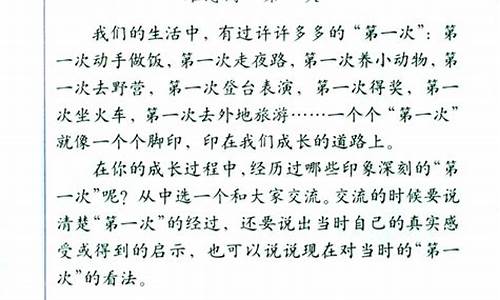您现在的位置是: 首页 > 中学作文 中学作文
九年级英语教案_九年级英语教案及反思全一册人教版
zmhk 2024-06-06 人已围观
简介九年级英语教案_九年级英语教案及反思全一册人教版 在接下来的时间里,我将尽力为大家解答关于九年级英语教案的问题,希望我的回答能够给大家带来一些思考。关于九年级英语教案的话题,我们开始讲解吧。1.九年级英语第十二单元的教案九年级英语第十
在接下来的时间里,我将尽力为大家解答关于九年级英语教案的问题,希望我的回答能够给大家带来一些思考。关于九年级英语教案的话题,我们开始讲解吧。
1.九年级英语第十二单元的教案

九年级英语第十二单元的教案
一、教学目标1.词汇:
单词,词组与句型:
while,cover,each,beside,seat,mind,furthest=farthest,leaf(leaves),instruction,
hate,journey,safely,jacket,nearly,cage,flight
write down make sure
come round in a minute
just then change one’s mind
take (good) care of by air
arrive in as much as possible
a bit narrow take off
in a moment try to do/try not to do
fly to somewhere fill sth with sth
hate doing sth
2.日常用语
Could you look after her for me while we’re away?
I’ll take good care of her.
He’s coming round to get her quite soon.
He’ll be here in a minute.
Oh, that must be Ling Feng now.
You haven’t changed your mind,have you?
I don’t mind.
Please speak to her in English as much as possible every day.
Can you do something for me, please?
There’s enough bird food here to last for two months.
3.语法:宾语从句(II)
1)由疑问代词(组)或疑问副词(组)作连接词
2)宾语从句的句式为陈述句形式 如:
Do you know what time the ship leaves?
We don’t know when we arrive.
Could you tell me who we have to see?
Could you tell me how we get to the plane?
I don’t know how many bags we will take with us.
二、教学重点
1.重点单词,词组与句型
2.语法:宾语从句
三、教学难点
语法:宾语从句
四、重点难点讲解
1.would like/love to do
would like/love 常用来代替want,特别在表示建议,希望等意义时,用的较多,语气较委婉,自然.二者基本相同,前者用的较普遍.如:
I’d like to look after my sister. 我很愿意照看妹妹.
Would you like (to drink ) a cup of tea? 来杯茶好吗?
Would like sb to do “想要某人做某事” 如:
I’d like you to wait for me. 我想让你等我.
What would you like me to do? 你想要我做什么呢?
2.动词take和带take的短语
拿到 take sth. to a place: take books to the classroom
take it (food) home
带到 take sb. to a place: take her to hospital/a doctor
take me to our home town
take the tiger to a big river
take Polly to his house
take the sheep to the field
带……下 take him down to the first floor
带上 take the shopping basket/Polly with you
拿出 take the basket from the boat
take the things out of the basket
take out the money
拿回 take the bananas back to the boat
吃,喝,服用 take them (food)before or after meals
take the medicine
花费 It will take you about half an hour.
take短语
take a look 看一看
take a message 捎口信
take one’s arms 拉住某人的胳膊
take (good)care of 好好照料
take turns (to do sth.) 轮流;替换
take a message 捎口信
take exercise 运动
take off 脱去;起飞
take the first turning on the left 在第一个路口向左拐
take a bus/train/ship 乘公共汽车(火车,轮船)
take care of 与look after的区别
My mother will look after me when I am ill. 照顾
Her job is to look after sheep on the hill. 放羊
(两者不能互换)
look可用于的短语
look at 看 look behind 往后看 look for 寻找 look like 像
look out 当心 look through 浏览 look up 查找
3.Could you do something for me ,please? 你能为我做件事吗?
在表示建议,请求,征询意见的疑问句中,一般不用any或anything,而用some或something 如:
Shall we have some tea? 我们喝杯茶好妈?
Why not do some shopping? 何不去买东西呢?
4.Could you look after for me while we’re away? 我们不再时,你能替我照看他吗?
“while”为表示时间的从属连词,通常用来表示两个时间较长的动作或时间在同时进行,主句和从句的谓语动词可用过去进行时,也可用一般过去时或一般现在时.如:
While you were reading the paper,I was doing my homework. 你在看报时,我在做作业.
John cooked supper while Mary cleaned the rooms. 玛丽收拾房间时,约翰做晚饭.
5.Are you sure you don’t mind? 你肯定不介意吗?
mind 是动词, “反对”, “不喜欢”, “生气”等,
主要用在疑问句和否定句中.如:
Would you mind opening the window? 请打开窗户?好吗
Do you mind people smoking? 你嫌人家抽烟吗?
mind 还可以做名词,表示 “思想”, “主意”, “想法”等. 如:
You haven’t changed your mind,have you? 你还没有改变主意,是吧?
常用的mind的短语: change one’s mind 改变主意
make up one’s mind 下决心
keep sth. in mind 记住某事
never mind 没关系
6.Please speak to her in English as much as possible every day.
请每天尽可能多地用英语和她谈话.
Read this story as quickly as possible.
尽可能快地阅读这篇故事.
as…as possible “尽可能……地”, “尽……地” 两个as之间多半是副词.如:
He’d like to see the headmaster as soon as possible. 他想尽快见到校长.
Please come as early as possible. 请尽可能早点来.
I’d like to know as much as possible about my exam.
我要尽可能多地知道关于我考试的情况.
as…as one can 如:
I’ll return the pan as soon as I can. 我会尽快归还这只锅.
Miss Zhao got a medicine box as quickly as she could. 赵老师尽快拿起这只药箱.
7.Where do the Greens stop on the way? 格林一家中途在什么地方停留?
on the way “在途中”, “在路上” the可以换成物主代词 如:
They stopped at different towns on the way. 路上他们在不同的城镇停留.
He met a friend on his way home. 在回家的路上,他碰到一个朋友.
教案中对教学方法的选择,板书设计,教具或现代化教学手段的应用,各个教学步骤教学环节的时间分配等等,都要经过周密考虑,精心设计而确定下来。下面是我给大家整理的初中英语优秀教案范文,供大家参阅! 初中英语优秀教案范文篇1ⅠTeaching Materials
1. Language Materials
Words: spoil, as, screen
Phrases: on the computer, find out
Sentences: I guess somebody else has borrowed it.
Could you find out who has taken it?
Grammar: The present perfect tense
ⅡTeaching Objectives
1. Read the whole lesson fluently, and pronunciation and intonation should be right.
2. Learn to read the information on the library cards and the computer screen.
3. Master the following materials
(4 skills) Word: as
phrase: on the computer, find out
(3 skills) Words: spoil, screen
Ⅲ Teaching Points
The main points: (1)&(2) in teaching objectives
The difficult points: learn to read the information on the library cards and the computer screen
Ⅳ Teaching Procedure
Organization of the class
Today, we are going to learn Lesson 4. In Lesson 4, we?re going to talk about the information on the library cards and the computer screen.
Revision
Before we go on to learn the new lesson, let?s go over what we learn in Lesson 3.
A. Oral
How could Grandma get all her lost books back?
the use of the adverbs in the present perfect tense.
The teaching of the new lesson
A. Lesson 4
Yesterday, we learned that grandma usually borrowed books from the library. There is a new library today. If you want to read books, how can you find them? Let?s go on to learn Lesson 4.
B. Part1
I?d like you to listen and do Wb. Ex.1
C. Part 2
Ask the students to write down something about the school librarian and report it to the class. Teach: as He works there as a shop assistant.
D. Part 4
Learn to read the information on the cards and the computer screen.
E. Part 3
Listen and answer: What does the boy want to borrow?
What?s its name?
Who has borrowed it?
Read and learn.
has borrowed, has taken, has got( the present perfect tense)
find out
Read and act.
F. Part 5
Read and learn.
G. Checkpoint 1
H. Wb. Ex.2&5
Homework
A. Wb. Ex 3
B. Go over the whole unit.
初中英语优秀教案范文篇2教学目标与要点
1.能够熟练运用所学知识来谈论"运动",特别是一些和生活密切相关的运动项目。
2.掌握本单元的有关"water sports"的单词和短语,能听、说、读部分地名,重点掌握 no mater,both?and?,all over等短语或习惯用语的用法。
3.进一步学习现在完成时态,特别注意它与already,just,yet,very等词的连用,同时能够区别它们的用法。
4.能够熟练运用现在完成时态,用它来表达由过去开始,和现在相联系的动作或影响,能够区别一般过去时与现在完成时的不同。
5.运用本单元所学知识来描述某一运动。如:the Olympic Games或surfing或diving等。
素质教育目标
1. 进一步学习现在完成时,灵活运用already, just, ever, never等词语。
2. 引导学生对水上运动和其他运动进行描述,达到阐述自已喜好的目标。
3. 在学习过程中,让学生了解体育运动对每个人的生活和工作的重要性。
4. 通过各种教学手段,如声音、、动画、电视、网络等,让学生在了解有关体育知识的基础上,自觉参与各项体育运动,培养积极向上的生活情趣。
5. 引导学生尝试运用不同的学习工具、学习方法、媒体素材等进行学习和提高。
教学设计方案
Teaching Objectives:
Students should master the dialogues, useful expressions about the present perfect tense.
Language Focus:
What's the surfing like today? Have you ever been to ? How long have you been to ?
Properties:
Tape recorder, topic cards, etc.
Teaching Procedures:
I. Revision
Ask student answer the questions of Have you?
T: Have you finish you homework? /Have you got your notebooks?
S: Yes./ No.
T: What have you done for English study?
S: (They may have different answers.)
II. Leading in
After a long vacation, Ss may remember something about their travel, let them think about where they have been. How to speak in English?
III. Presentation
Write the sentences on the blackboard:
Have you ever been ______?
I have already been _______ several times. / I've never been there.
Explain the meaning of sentences and the word ever, already and never.
Open the textbook and turn to page 6, lead the Ss to read the word Bondi Beach, Cape Town, Hawaii, Newquay, surfed, water-skied, canoed, dived in part 2.
Let Ss read part 2 dialogs in pairs.
IV. Practise
Let them close the textbook. Show a topic to Ss: Ted and Bruce's talk beside the beach. Say to Ss: "Please image that you are Ted and Bruce, you are talking about your trip and water sports, you'd better use Have you ever been ?, surf, uncle. Five minutes later, go to the front to show your talk with your partner."
Check their talks in pairs, encourage them to speak aloud and practise as the actor.
V. Presentation
Play the tape of Part 1 for the students to listen three times. The first time, let one or two Ss speak the main sentences in the dialog. The second time, volunteers repeat what they hear. The third time, try to rewrite the whole sentences.
Ss open their textbooks, and check what is not remembered.
Ss could find any problem about this dialog, T give them the answer.
eg. have a try, I don't know how to surf, Since last Wednesday, None of us has, etc.
VI. Exercises in class
T read the questions below, and Ss give their answer, to improve and impress what have learned.
1. They are good ___________. Do you like __________? (surf) answer: surfers, surfing
2. We have been to Hawaii __________. (two) answer: twice
3. Mike hasn't done his homework _____.
A. already B. just C. yet D. either answer: C
4. Ted has been a bus driver _____ five months ago.
A. for B. since C. from D. in answer: B
5. - _____ have you been to Cape Town?
- Since last Wednesday.
A. How often B. How many times
C. How long D. How soon answer: C
6. She is very busy. He hasn't had a day _____ for three weeks.
A. busy B. free C. off D. on answer: C
VII. Homework
1. Finish your dialog design after class, try to use what you have learn.
2. Finish the exercises on page 97.
3. To read Surfing in page 7, find the main sentences, and think about what kind of water sport you like best, why?
初中英语优秀教案范文篇3Teaching Objectives:
Students should understand the meaning of reading, master useful expressions and learn more about the present perfect tense.
Language Focus:
Useful topic: Surfing, beaches; useful expressions: have been, never, ever, no matter how, neither nor, etc; and other reading skills.
Properties:
Tape recorder, topic cards, answer sheet, etc.
Teaching Procedures:
I. Revision
Revise the Present Perfect tense, do the exercise 2 on page 97, ask students answer the questions one by one.
II. Pre-reading
There are many kinds of water sports, such as swimming, paddling, Boogie-boarding, and dragon boat race in China. What water sports have you watch? What kind of water sport you like best, why?
III. While-reading
Before first listening of Surfing, read the questions of exercises 1 on page 98. Prepare their answer sheet. Ask the students bring these questions to listen the tape or video first time. Write their answer if possible.
Then play the tape or video once again, ask the students check their answers. And then let them try to give the main sentence of this reading.
Open the textbook, turn to page 7. Let Ss find the new words and useful expressions in five parts (each part for each paragraph). Ask them give correct explanation. Make sure everyone is on task. While working, teacher go around the classroom and give help where need. Then show the answers of them. Teacher explains the main sentences, such as Now it is enjoyed by people all over the world; It's neither too hot nor too cold all the year round; etc.
IV. After-reading
Discussing in four parts, talk about San Francisco, Honolulu, Hawaii, Hainan island. After discussion Ss should give Where is it, What it famous for, What water sport are there, etc.
V. Homework
1. Finish exercises 2 on page 98.
2. Revise the new words, useful expression and sentences
今天关于“九年级英语教案”的讲解就到这里了。希望大家能够更深入地了解这个主题,并从我的回答中找到需要的信息。如果您有任何问题或需要进一步的信息,请随时告诉我。









